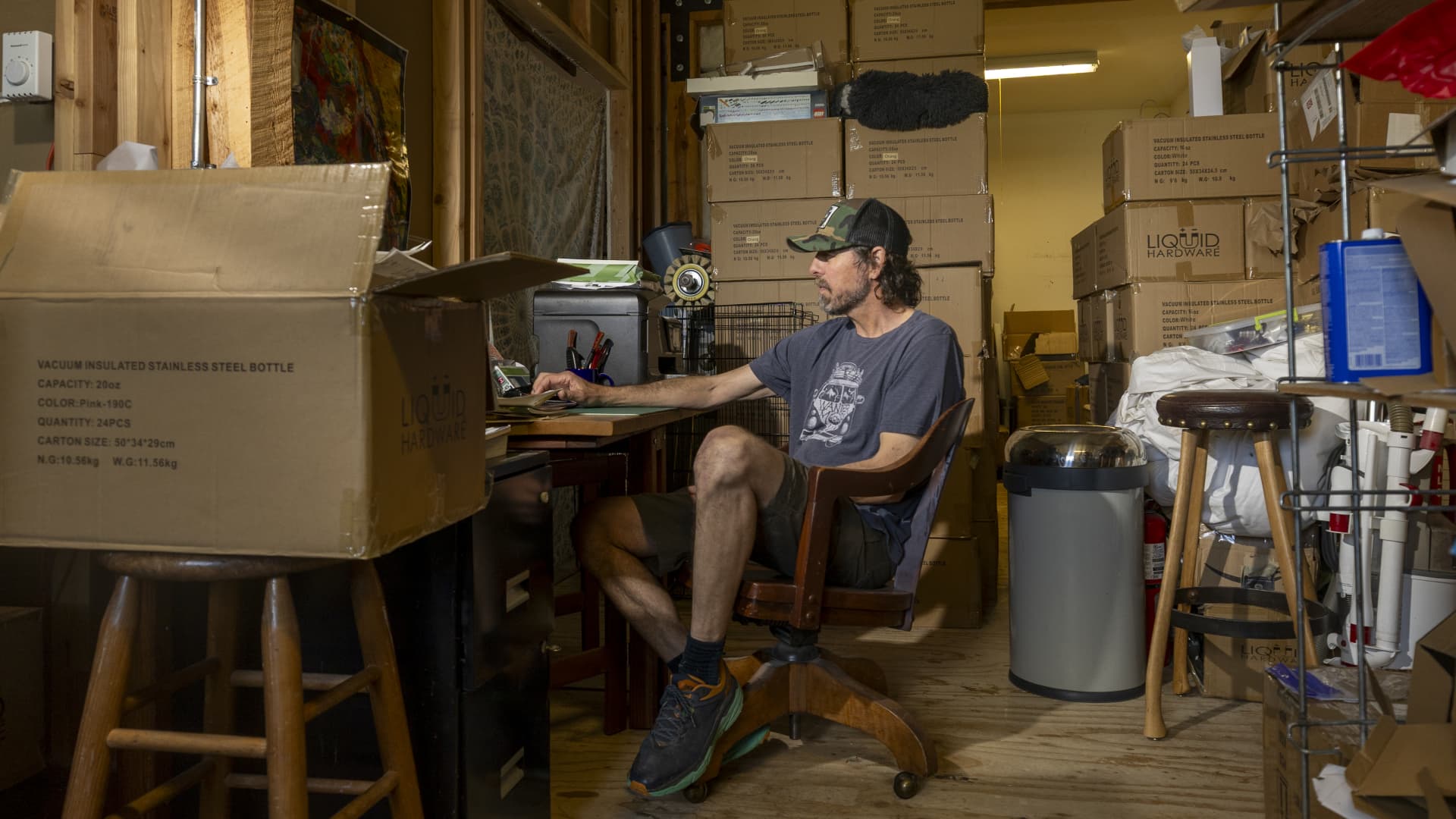
Across consumers, corporate boardrooms and Wall Street, the feeling of economic optimism that came with the start of the second Trump administration quickly dwindled amid growing uncertainty around the impact of tariffs and a potential recession. Main Street has seen a similar shift, according to the new quarterly CNBC|SurveyMonkey Small Business Survey.
Just 30% of small business owners said they would rate the current state of the economy as excellent or good, compared to 70% saying it’s fair or poor, according to the CNBC|SurveyMonkey data. That compares to 39% rating the state of the economy as excellent or good in the first quarter’s poll.
Seventy percent of small business owners said they believe the country is headed towards a recession, a sentiment that is somewhat shared across the political aisle — nearly all Democrat respondents forecast a recession while nearly half of Republicans did (47%) as well.
Furthermore, 51% of respondents said they disapprove of the way Donald Trump is handling his job as president. That compares to 39% during his last quarter as president in 2020.
Small business confidence tracked by the survey is now lower than at any point during Trump’s first term, other than during the worst quarter of the Covid crisis and the last quarter of his presidency (which was more a reflection of Biden’s election and expectations on Main Street about Democratic Party business policies).
The CNBC/SurveyMonkey poll was conducted between April 21-25, 2025, among a national sample of 2,257 self-identified small business owners.
Large corporations have continued to sound the alarm this earnings season regarding the impact that proposed tariffs would have on consumers. Just this past week, jewelry brand Pandora warned of significant price increases across the affordable jewelry industry; Mattel said it could increase prices of toys like Barbies and Hot Wheels; and Microsoft announced price increases for Xbox consoles and controllers.
Small businesses are forecasting a similar tariffs hit. Fifty-one percent of respondents said that they expect changes in trade policy to have a negative effect on their business over the next 12 months, compared to 27% that said it will have no effect and 21% that said it will have a positive effect.
Overall, 66% of small business owners either have been or expect to be impacted by tariffs. While inflation (24%) and consumer demand (18%) remain the top risks listed by small business owners, tariffs increased to 17%, up from 10% last quarter.
U.S. Chamber of Commerce CEO Suzanne Clark told CNBC’s Megan Cassella earlier this month that the business lobbying group has been “inundated by small business requests for information, for relief” from the potential tariffs.
The U.S. Chamber of Commerce has appealed to the Trump White House to automatically lift tariffs on all small business importers, as well as other efforts it says would avoid inflicting “irreparable harm” on small businesses.
“We are deeply concerned that even if it only takes weeks or months to reach agreements, many small businesses will suffer irreparable harm,” Clark wrote in a letter sent on April 30 to Treasury Secretary Scott Bessent, Commerce Secretary Howard Lutnick and U.S. Trade Representative Jamieson Greer.
“The Chamber requests the administration take immediate actions to save America’s small businesses and stave off a recession,” she wrote.
To date, the White House has not acted on those requests, and the continued uncertainty over the potential tariffs and their impact has led increased pessimism over the economy and a growing fear of a potential recession.
Many small businesses are reliant on manufacturing in China, now subject to 145% tariffs, which has led many to pause orders from Chinese factories.
On Friday, President Trump said in a Truth Social post that he might be willing to lower tariffs on China to 80% and teased that many more trade deals are coming. “Many Trade Deals in the hopper, all good (GREAT!) ones!” Trump wrote.
All the trade uncertainty is leading to added financial stress on small business owners, both for their businesses and their own wallets. Sixty percent of respondents said they are either very or somewhat stressed about their businesses’ finances these days, while 63% said they are very stressed or somewhat stressed about their own finances. While inflation is the top contributor of stress across the board, tariffs ranked second.
Fed Chair Jerome Powell, speaking on Wednesday after the Federal Reserve held steady on interest rates, warned that the proposed tariffs could lead to a slowdown in economic growth and potentially a rise in long-term inflation.
“If the large increases in tariffs that have been announced are sustained, they are likely to generate a rise in inflation, a slowdown in economic growth, and an increase in unemployment. The effects on inflation could be short-lived, reflecting a one-time shift in the price level. It is also possible that the inflationary effects could instead be more persistent,” Powell said.






